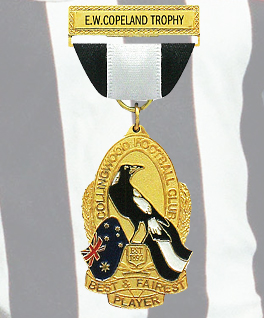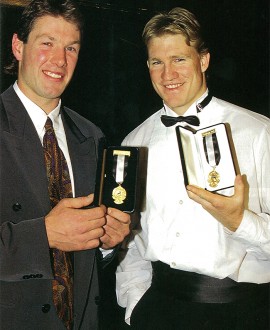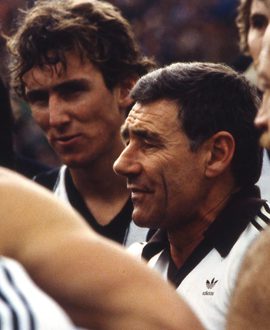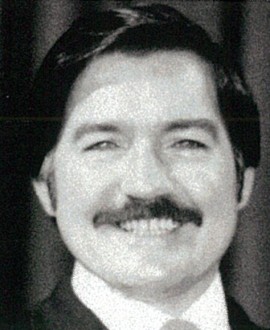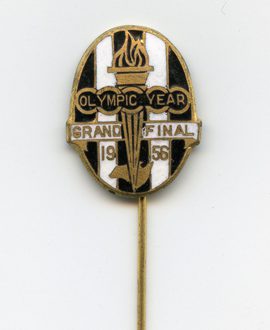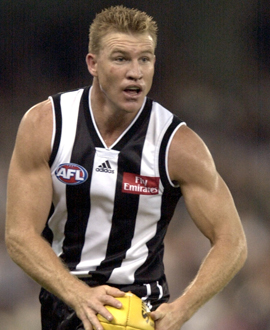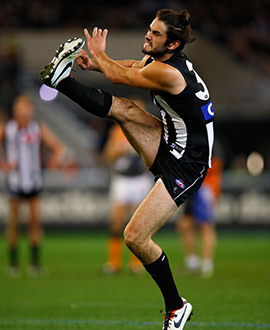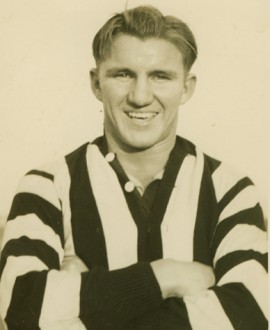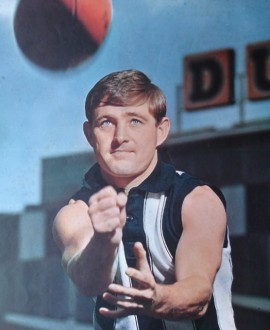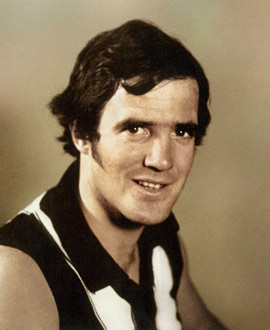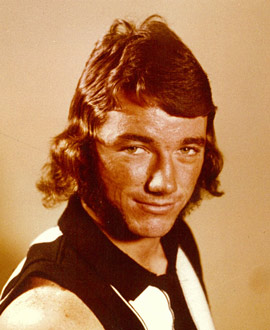The trophy awarded to Collingwood’s best and fairest at the end of each season is named in honour not of a player or a founding father, but instead of a working man. Ernest William 'Bud' Copeland was secretary of the club from 1895 to 1923, a period considered to be the most vital to Collingwood’s existence.
The chief clerk at the Metropolitan Gas Company, Copeland’s business acumen was crucial first in helping the club survive the Depression of the 1890s, and thereafter in maintaining growth and operations on a secure financial footing. Copeland’s first order of business was to develop and restore Victoria Park into a ground that was suitable to hold matches on. In previous years, the maintenance of the ground was overlooked and Victoria Park was dilapidated and rundown. Copeland was appointed secretary of the Victoria Park Council which was established in 1898.
Through his direction, funds started to creep in (admission sales and grants) and the ground soon flourished, incorporating new grandstands and vastly improved facilities for the spectators. Copeland’s service as secretary ended in 1924 when he retired due to business commitments, though he serve as vice-president for two more years. In his 29 years as secretary, Copeland, known as “Bud” because of the fresh red rose he wore in his lapel, never missed a Collingwood game.
The club honoured his devotion to the club, and his impact on it, by naming Collingwood’s trophy for best and fairest player after him. The trophy was first awarded in 1927 and continues to be the most highly coveted of all individual honours at the Collingwood Football Club. Ernest W. Copeland died on March 20th, 1947.
Notes • Copeland supported Richmond’s motion to be included in the VFL. It is argued that he was the defining factor in the VFL’s selecting of Richmond, ahead of North Melbourne, as the tenth team in the competition. Information used to compile this article was sourced from "Kill for Collingwood" by Richard Stremski. A special mention to Peter Furniss from the Collingwood Archives Committee who supplied additional information used in this article.


